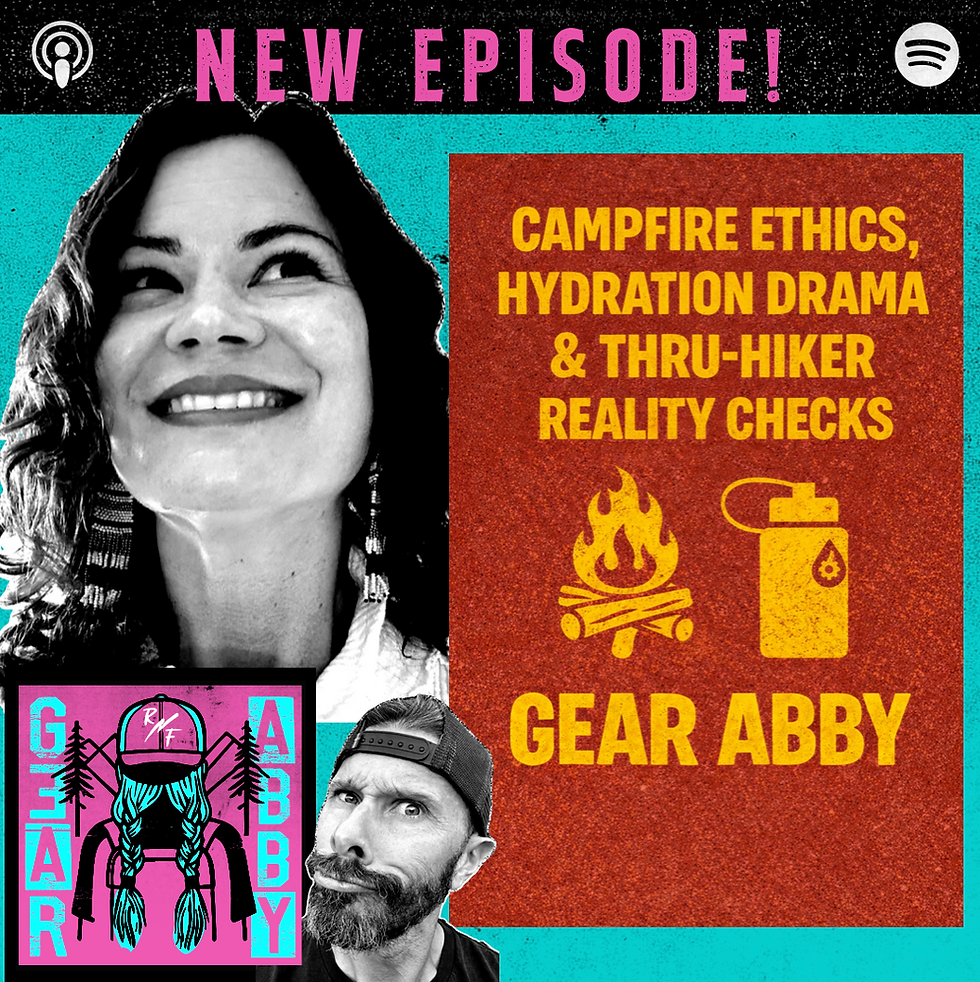You Are A Dirtbag
- colin7931
- Aug 4, 2025
- 3 min read
If you’re in the outdoor industry, you’re a dirtbag.
And that’s something to be proud of. It means your primary drive is being outside: getting in the dirt, finding new singletrack, skiing powder, climbing sketchy lines. Maybe all of the above. Probably all of the above.

Your gear is stuff you’ve held onto for years. Stuff you somehow scored a deal on. Stuff you’ve learned to love because it was with you on that crazy traverse in the Mummy Range, running Colorado’s Glenwood Canyon, or finding a guy in Japan who took you to his secret stash in the north.
Real life isn’t just about the job, it’s about those moments. And you do whatever it takes to hold onto them.
But here’s the catch: you still need the job. You still need the responsibilities.That’s where the outdoor industry comes in. It’s a place where dirtbags can earn a kind of respect. A space where your never-ending need to be out there can actually turn into a career.
That’s certainly what happened to me. I spent summers working in the dirt, building trails for the Forest Service. Winters were filled with odd jobs, teaching English as a second language, bartending at Buck’s T-4 in Big Sky on weekends, tutoring at Montana State.
Anything to make sure most of my day was still dedicated to being a dirtbag.
And don’t even get me started on gear. I came into the outdoor industry with REI pants I bought on sale and held together with duct tape, and a rain jacket I used as a ski layer. Years later, after writing reviews and testing gear around the world, my garage is a strange, glorious horde of outdoor equipment. I’m still thinking like a dirtbag.

Sure, this might sound selfish but think about what really matters. It’s a cliché, but a true one: people on their deathbeds don’t wish they’d worked more. They remember the time they spent experiencing the world. And the better the experience, the deeper the understanding, the beauty in subtle things: moving up rock, floating through pow, or feeling the wind tear across a ridgeline.
There’s an idea I keep coming back to when it comes to skiing, climbing, or any outdoor pursuit: it’s a practice. A beautiful one. An art. No matter how good you get, no matter how much you learn, there’s always an ocean more. And what a beautiful way to live.
I once worked with a few cowboys helping us haul water bars on a steep trail. I told one of them I’d be ski-bumming that winter. He just looked at me and said,
“Best thing you can do with your life.”
Those memories they’re what keep us going. They’re the reason we go back to the job. This industry was built by dirtbags who needed a paycheck but refused to give up the life. I’ve talked often about how Yvon Chouinard started making climbing gear just so he could climb. That evolved into a vision of lifestyle that could be commodified with guardrails. It grew into a nationwide phenomenon.
And I love talking about Cloudveil, the classic, beloved Jackson Hole brand founded by ski bums who hyped a new fabric and changed how we thought about jackets forever.
Now we’re seeing the next generation do the same. Like GG Edwards at Gnara. Just a guide on a glacier, with a vision for pants that worked better for women in the wild.
We joke that all we want to do is be outside. But that time outside builds real skills: problem-solving, resilience, and a deep care for the natural world. Turns out, those qualities are perfect for business. Not just profitable business, but business that supports people, protects the planet, and builds something lasting.
Capitalism is a double-edged sword. We need productive lives, yes, but unchecked, capitalism devours what it’s supposed to support. And right now, we’re deep into that imbalance.
Maybe we, the outdoor industry, are the key. Maybe dirtbags are exactly what the world needs right now.
To build better businesses. To help the planet heal.
Doug Schnitzspahn's Opened Container is a weekly column that highlights Doug's unique point of view on the intersection of outdoor culture, policy, business, politics, and conservation. To hear more, listen to Doug's podcast Open Container by clicking here. Let's get some.




